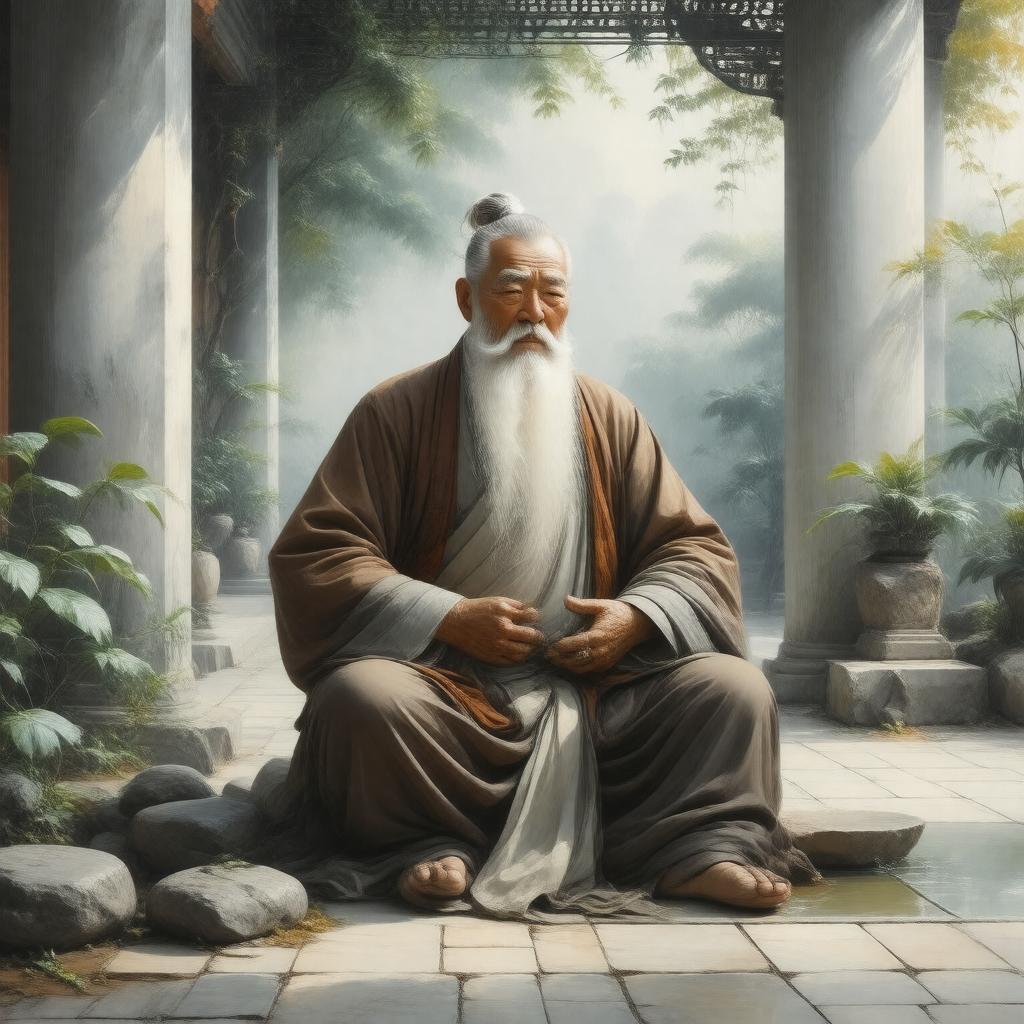Prompt
Create an image of Confucius, the great sage and teacher, in a serene and contemplative setting. Depict him as an elderly man with a long white beard and wearing traditional ancient Chinese attire, sitting in a tranquil courtyard surrounded by lush greenery and stone pillars. Incorporate subtle elements that reflect his philosophical teachings, such as a few carefully placed stones or a simple water feature, to convey a sense of wisdom and introspection. Render the image in a classical Chinese painting style, with gentle brushstrokes and muted colors, to evoke a sense of reverence and timelessness. The subject is a person, specifically a philosopher and teacher, so ensure the depiction is dignified and respectful.

